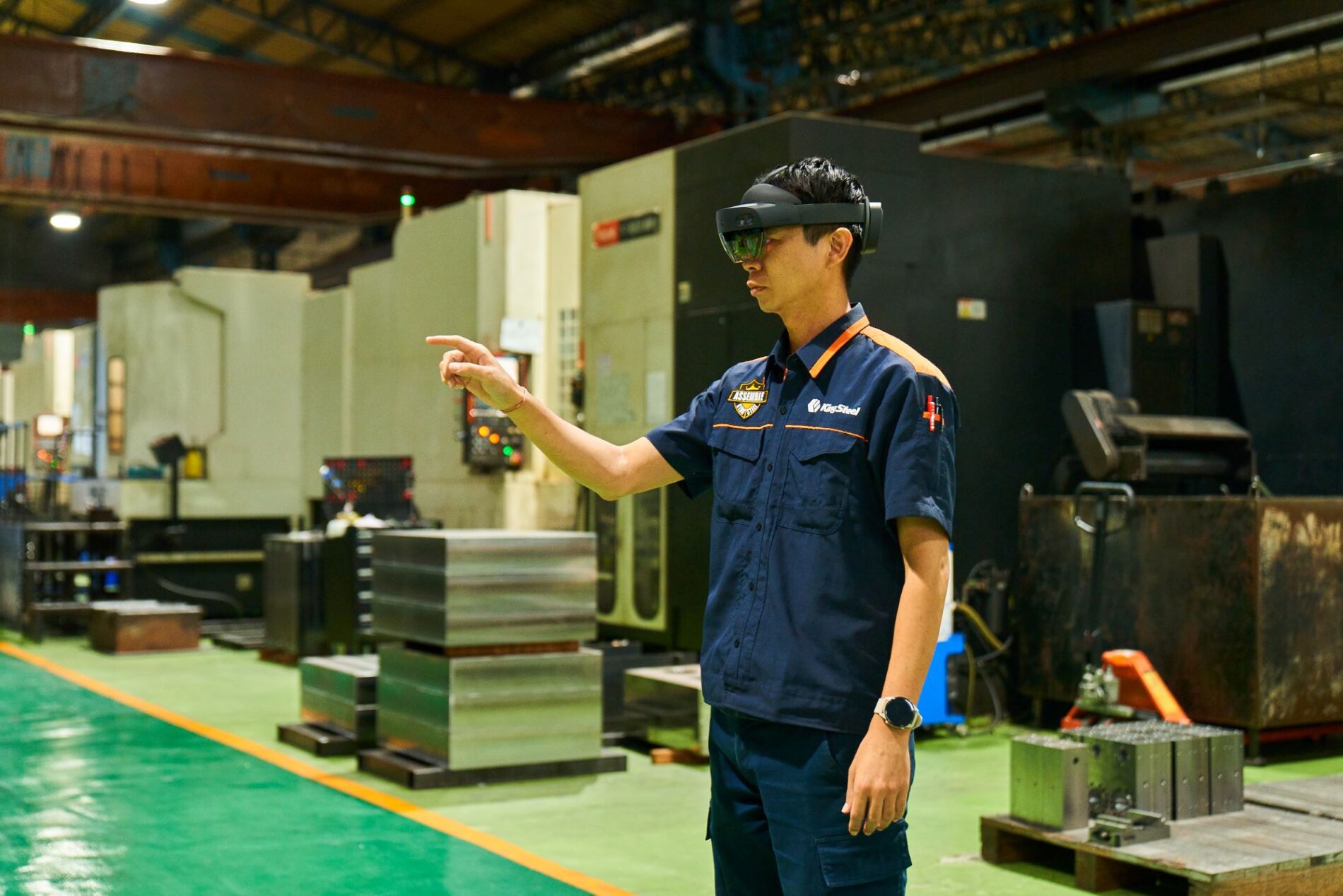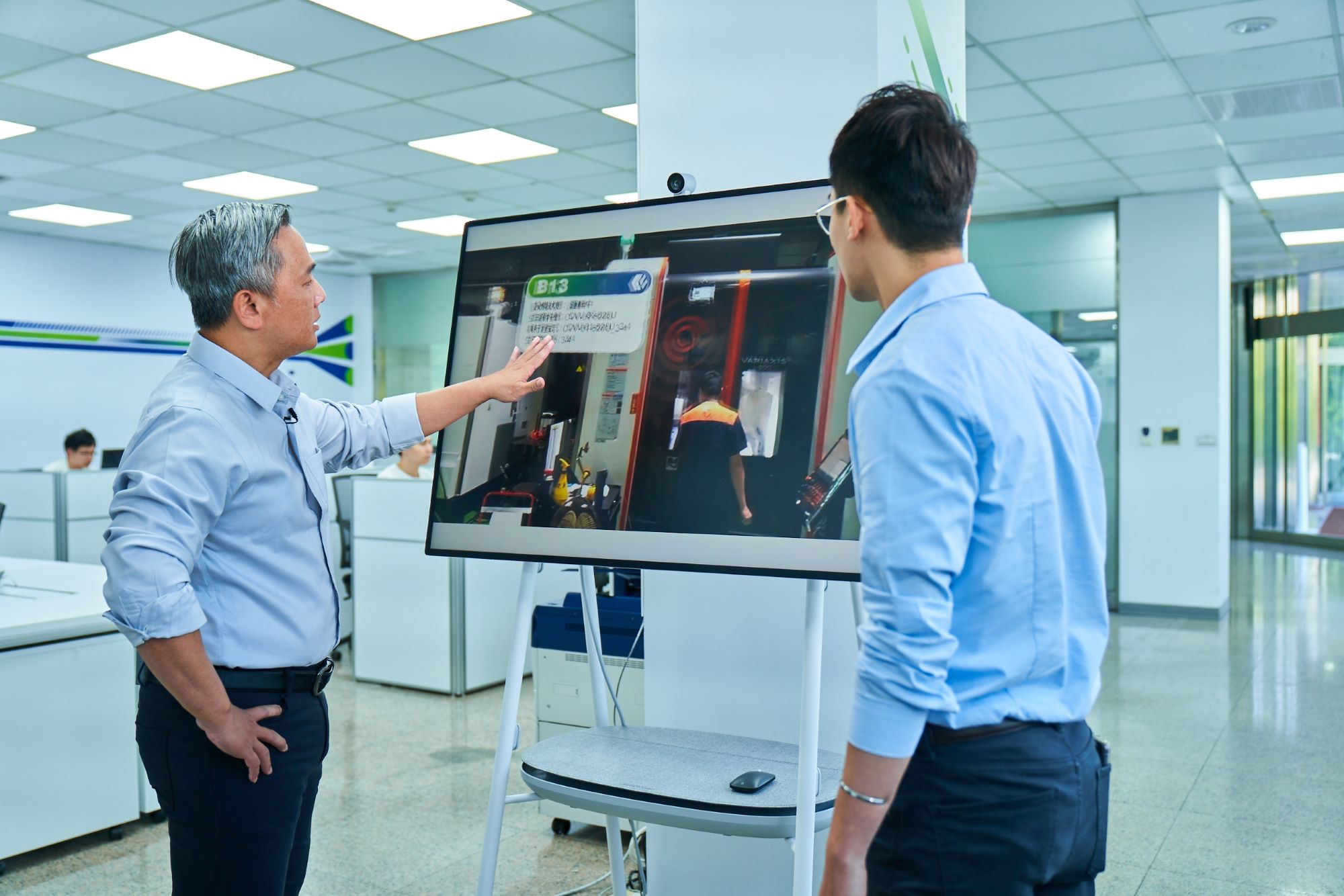
With generational change, Taiwan’s King Steel transforms into an innovation and sustainability leader
When Jim Chen left his own startup to run his family’s company four years ago, he quickly saw its half-century old business model needed a reset.
King Steel Machinery was founded in Taichung, Taiwan, in the 1970s. For decades, success had come from designing and building precision shoe-making machinery for big-name footwear brands popular with consumers around the world.
But soon after he became vice president for business development under a family succession plan, Chen identified a shift in the market. Footwear brands were looking for more than just machinery. They also wanted customized manufacturing solutions, data insights and sustainable outcomes.
The 30-something entrepreneur realized that to survive, grow and compete, the company needed to embrace digital transformation and become an eco-friendly innovator. To get there, employees, managers and his family would have to adopt a new mindset.
“Digital transformation is the process of choosing the right digital tools. Once goals are set, choosing the tools is easy,” Chen said. “My family elders who started this company have been supportive, but we didn’t make these changes all at once. It was a step-by-step process. Both customers and employees have felt the impacts and benefits.”
Previously, Chen headed Otrajet, a startup that developed an innovative never-flat tire for bicycle-sharing fleets. It thrived under a culture based on innovation and transformation.
So, when Chen moved across to King Steel he was well versed in how to launch new product lines, add systems for easy onboarding of new hires and open new manufacturing centers. He had a vision in place, but to execute it he needed to get more than 100 employees on board to support change.

King Steel’s staff range in age from 18 to 70, each with their own ways of thinking. When Chen asked managers what problems they were facing, they all had different answers. Reaching consensus was next to impossible.
Chen rose to the challenge. He wanted to foster an environment in which employees could talk to each other regardless of hierarchy or position.
That’s when managers started training employees to use Microsoft Teams as a platform for staff communications. Six months later, he has noticed a difference. Employees at all levels started exchanging ideas and company-wide communications were fluid, Chen said.
The company decided to apply Teams to even bigger projects, even using it to boost operational efficiency by adding suppliers into the Teams ecosystem for instant communications.
Chen also faced another challenge: the threat of cybercrime. After the company’s enterprise resource planning (ERP) platform was hacked, its entire system had to be shut down for recovery.
It was a major blow to operations, and a wake-up call for King Steel. Leaders in the company needed to build resilience against both competitors and malicious hackers. The right digital tools could help. Chen and his team implemented the Microsoft Dynamics 365 CRM platform and rolled out a suite of Microsoft Cloud data solutions.
It also embraced the mixed-reality capabilities of Dynamics 365 Remote Assist, using HoloLens 2 to troubleshoot and maintain their equipment on the factory floors of their customers.
King Steel then looked to Microsoft boost its manufacturing services with custom data solutions. The company started mining equipment data, such as how injection molding machines work and how changing materials can achieve new results. Employees now collect parameters such as temperature, pressure and input quantity, which they use to bring new insights to their clients.

The company also stepped up its efforts around sustainability by developing its Nature Cross Future initiative – a direct molding process that allows shoemakers to produce recyclable midsoles.
“In 2020 we launched a new machine that’s very different. It can 100 percent recycle the midsole, helping brands enormously reduce the waste of midsoles and flip flops.
“It’s a big deal for the industry. Going forward, Nature Cross Future will help redefine the whole shoe industry and King Steel will focus on sustainability,” he said.
Midsoles are notoriously difficult to recycle. However, King Steel has developed high-tech machines that can produce completely recyclable midsoles.
The company has also incorporated Microsoft digital technologies into the manufacturing process, increasing efficiency and boosting sustainability. It uses Teams and Dynamics 365 to increase the speed of research, development and manufacturing. These technologies help create new machines for different brands in different production lines, so the whole industry can move into green manufacturing much faster than expected.
Additionally, Microsoft Azure IoT Digital Twins make the entire value chain transparent, reducing material waste and saving energy. Some shoe factories lose inventory when unofficial shoes get produced to be sold on the black market. Digital Twins help factories precisely manage the whole value chain.
King Steel also has been looking at other ways to reduce carbon emissions from shoemaking. The company has developed a process that uses a foam agent to collect carbon dioxide from the air.
Chen says that by embracing digital transformation, King Steel can now offer its shoemaking customers sustainable and customized manufacturing and data solutions.
While it’s hard to predict what he’ll face next, Chen believes his family business is well prepared for challenges in the years ahead.
Top image: A King Steel worker on the factory floor of King Steel using HoloLens 2. Photo credit: Microsoft
